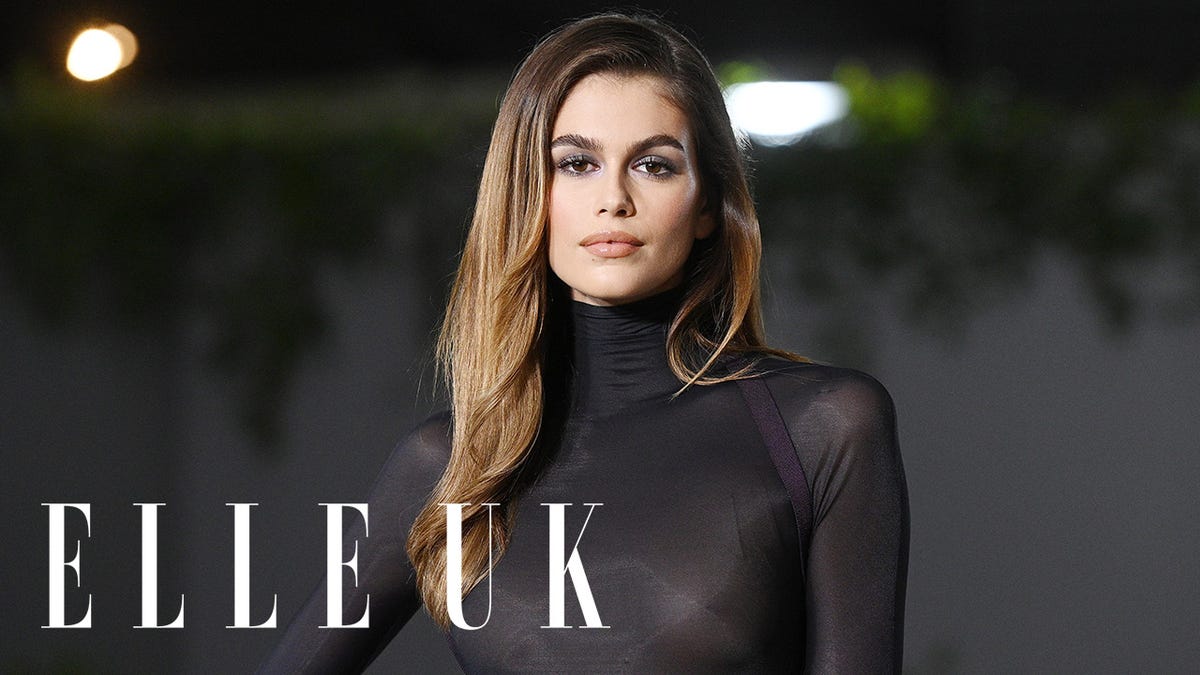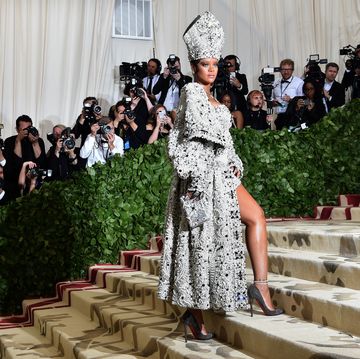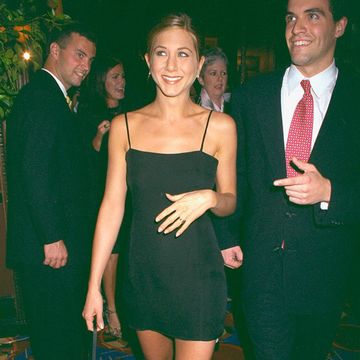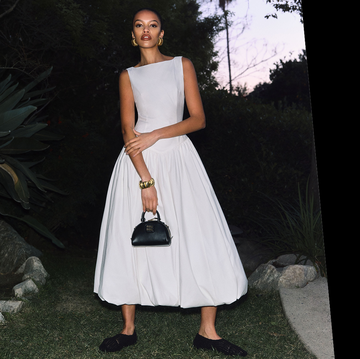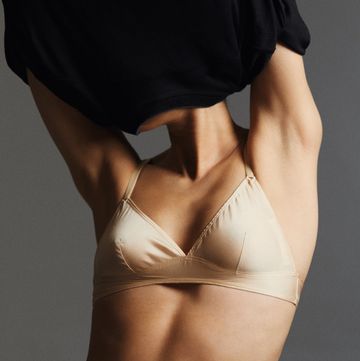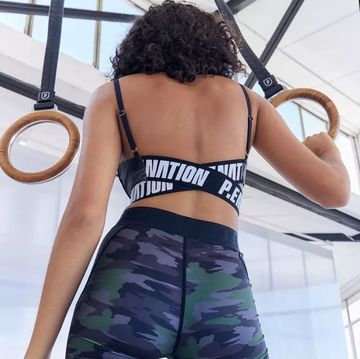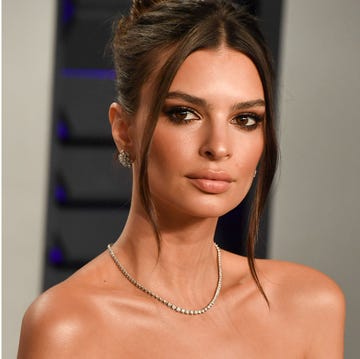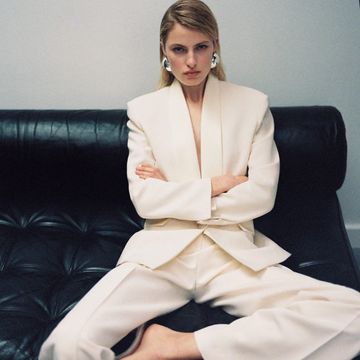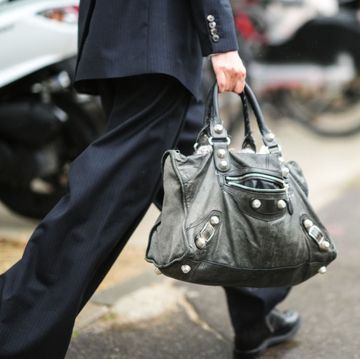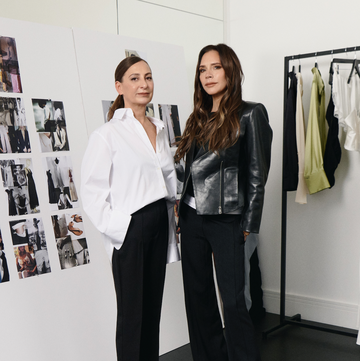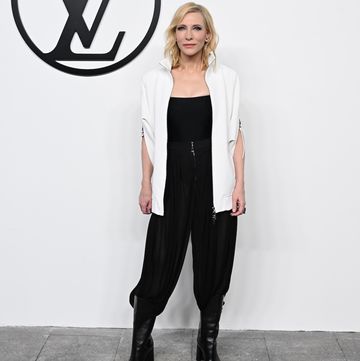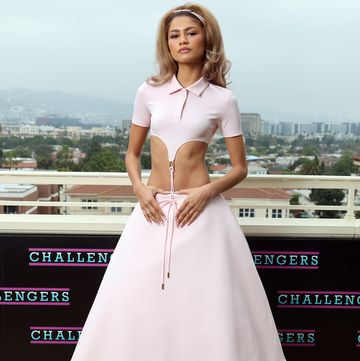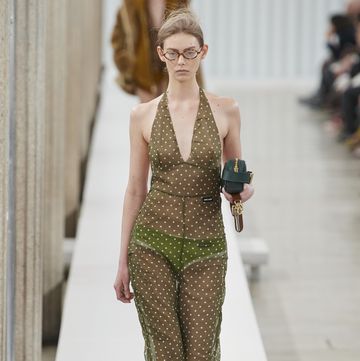As part of the 'Accessible Luxury' feature in the September issue of ELLE (which, of course, you've already read) we sat down with CEO to talk about her decision to show at London Fashion Week. Here's what she had to say.
Why did you decide to show during fashion week?
It seemed a very obvious thing to do. The only place and time that you can showcase your brand to the international press and buyers is fashion week. It was only really after wed announced that we were doing it that it seemed to become quite a controversial issue. But in New York Theory, Vince and always show, all these people who sit next to us within this contemporary market place, and if theyre showing I dont see why we wouldnt.
Will you do it again?
I think we have to, you cant just do it once and then say, oh, I was just doing it for a bit of a laugh. And it really helped to raise our profile and reposition us as a contemporary brand. Its a huge amount of work apart but internally it gives everyone such an impetus, it lifts everybodys game because if you know the spotlights going to be on you then of course you try harder and you push against boundaries.
Does having a catwalk show change the way that you think about the collection?
Its a concentration of everything we do and we make fewer compromises with it, its our purest vision if you like. And it does force you to really cut through into what your DNA really is. It makes the more diluted, core collection better too, it always keeps it moving.
Have you been surprised by how many people have wanted to buy into a more high-priced, premium line?
Yes, its amazing, everybody wants it. When it started we were only making smallish quantities of the Limited Collection but weve had to up our production on a lot of the pieces. Its been quite a surprise but its great. The more people buy into the more beautiful fabrics the better.
Yes it really does. I think British people take fashion much more seriously than any other nation so, moving internationally, were having to produce pieces that are luxurious but slightly more classic, adding a little bit of polish and pulling down the edginess.
How do feel about the term high-street in relation to Whistles?
We tend not to want to be called high street because high street tends to be the much lower priced end of the market and were not. And we dont get any of the advantages of the high street; were not mass market, we cant afford to be on the high street usually, were not fast fashion, we dont cover every trend, we dont have 2000 lines a season, we have an edited collection of clothes that we think are absolutely on trend for a season but are curated in a way that we think is right for our customer. We call ourselves contemporary because thats what the Americans call what we do.
Youve been working in the industry for a long time, how has British fashion changed since you started?
When I started the high street was a pretty grim place, it was all very price driven and you either bought high street or you bought designer. Theres been a democratisation of fashion with people mixing things up and brands have had to up their game at the bottom because otherwise they wouldnt survive. The contemporary piece of the market wasnt there six years ago, it didnt really exist, and now thats becoming stronger and stronger. I think the British are always very good at responding to a challenge or a bit of competition, I think were quite good at reinventing ourselves and coming up with something thats a bit new and exciting. I think its an amazing time to be in fashion I really do.
Go behind the scenes on this months cover shoot with Katy Perry
